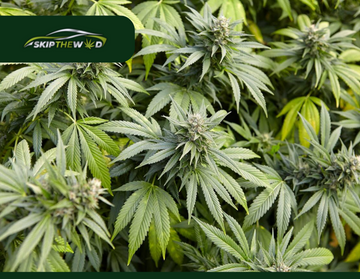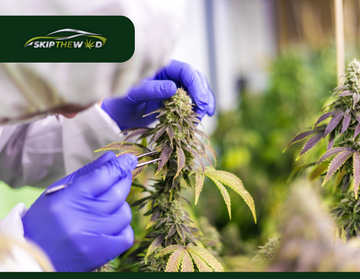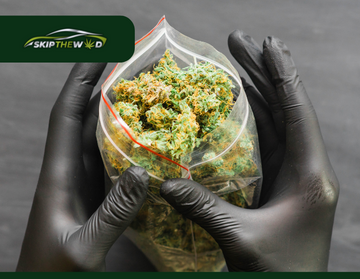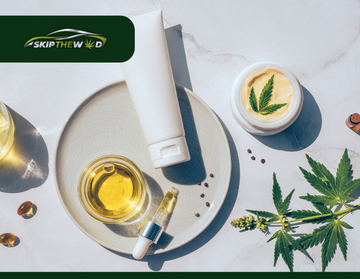Cannabis has a unique legal status in Canada, especially since its legalization in 2018 under the Cannabis Act. However, its classification as a drug is distinct when compared to other substances regulated by the government. Understanding how cannabis is categorized helps shed light on its legal framework, potential risks, and its standing in Canada’s healthcare and law enforcement systems.
How Cannabis is Classified Under Canadian Law
Before legalization, cannabis was classified as a controlled substance under the Controlled Drugs and Substances Act (CDSA). This placed it in the same category as other controlled drugs, subject to criminal penalties for possession, production, and distribution. However, the passage of the Cannabis Act in October 2018 changed the landscape entirely.
Under the current legal framework, cannabis is no longer classified in the same way as other narcotics or controlled substances. Instead, it has its own rules and regulations governing its use, sale, and distribution. While it is regulated to ensure safety and proper usage, it is not classified as a "drug" in the traditional sense that prescription medications or narcotics are.
Key Features of Cannabis Under the Cannabis Act:
- Legal for Recreational Use: Adults over the age of 18 or 19 (depending on the province) can legally purchase and possess cannabis for recreational purposes, within specified limits.
- Medicinal Use: Cannabis is also available for medical use, with patients able to access it through healthcare practitioners and licensed producers.
Recreational vs. Medicinal Cannabis
The distinction between recreational and medicinal cannabis is an important one in Canada:
- Recreational Cannabis: As a recreational substance, cannabis is treated similarly to alcohol or tobacco, regulated by both federal and provincial governments. It is not classified as a narcotic or controlled drug for recreational users, provided they adhere to the laws set out by the Cannabis Act.
- Medicinal Cannabis: For those using cannabis medicinally, it can be prescribed or recommended by healthcare professionals for various conditions, such as chronic pain, epilepsy, or nausea from chemotherapy. However, even for medicinal purposes, cannabis is not considered a prescription drug in the same way pharmaceutical medications are. Instead, it falls under a separate category, and patients must obtain cannabis from licensed producers.
Cannabis vs. Other Controlled Substances
Cannabis is unique in that it is no longer classified under the Controlled Drugs and Substances Act, unlike substances such as opioids, benzodiazepines, or stimulants.
- Schedule I Substances: Cannabis was once classified under Schedule II of the CDSA, which grouped it with other substances that had a high potential for abuse but still had medical applications. Since the legalization, cannabis has been removed from this list, whereas drugs like heroin, cocaine, and methamphetamine remain under strict control as Schedule I substances due to their high potential for abuse and no recognized medicinal value.
- How Does Cannabis Compare?:
- Alcohol: Similar to alcohol, cannabis has its own regulatory framework, separate from the CDSA. Both substances are legal for adult use but are subject to age restrictions, possession limits, and laws regarding distribution and consumption.
- Tobacco: Like tobacco, cannabis is also governed by specific health and safety regulations, including advertising restrictions and packaging requirements.
Medical Cannabis: A Grey Area?
While cannabis is not classified as a traditional pharmaceutical drug, its medical use adds a layer of complexity. Patients using cannabis for medical conditions often require a healthcare practitioner’s authorization, similar to receiving a prescription. However, it is not dispensed through pharmacies the way other prescription drugs are, which sets it apart from traditional medical treatments.
Medicinal cannabis products are obtained from licensed producers and require specific documentation, such as a medical document from an authorized healthcare professional. Even though it is not listed as a "drug" in the conventional sense, its medical benefits and applications have been widely recognized and accepted in Canada, contributing to its growing popularity among patients.
Provincial and Territorial Classification of Cannabis
While the Cannabis Act provides the overall legal framework, individual provinces and territories in Canada may implement additional regulations:
- Age Restrictions: Provinces can set age restrictions higher than the federal minimum of 18 years. For example, the legal age for cannabis in Quebec and Alberta is 21 and 18, respectively.
- Distribution and Retail: Provinces and territories control how cannabis is distributed and sold. Some provinces have government-run cannabis stores, while others allow private retailers to operate.
- Possession Limits: While the federal limit is set at 30 grams for personal possession, provinces may have additional laws regarding possession in public places.
Cannabis and Drug Scheduling Globally
In contrast to Canada's progressive stance, many countries still classify cannabis as a controlled or illegal substance. In the United States, for example, cannabis remains a Schedule I drug under federal law, meaning it is considered to have no accepted medical use and a high potential for abuse. Similarly, in other parts of the world, cannabis is either illegal or tightly regulated, making Canada one of the leading nations in terms of cannabis law reform.
Conclusion: Cannabis in Canada – A Class of Its Own
Cannabis stands in a unique position in Canada’s legal and medical landscape. It is no longer classified as a controlled drug but exists under its own regulatory framework due to the Cannabis Act. This distinction allows for recreational use, medical applications, and home cultivation, all while maintaining important safety and regulatory measures.
Whether you’re new to cannabis or a long-time user, understanding its classification helps you navigate the rules and ensure responsible consumption. And if you’re looking for top-quality cannabis products, Skip the Weed has you covered. With a wide range of products that meet Canadian legal standards, from premium flower to concentrates and edibles, we have something for every cannabis enthusiast. Visit Skip the Weed to explore our offerings, or call us at 204-294-6583 to place an order. Let us help you enjoy the benefits of cannabis while staying fully compliant with Canadian laws.









